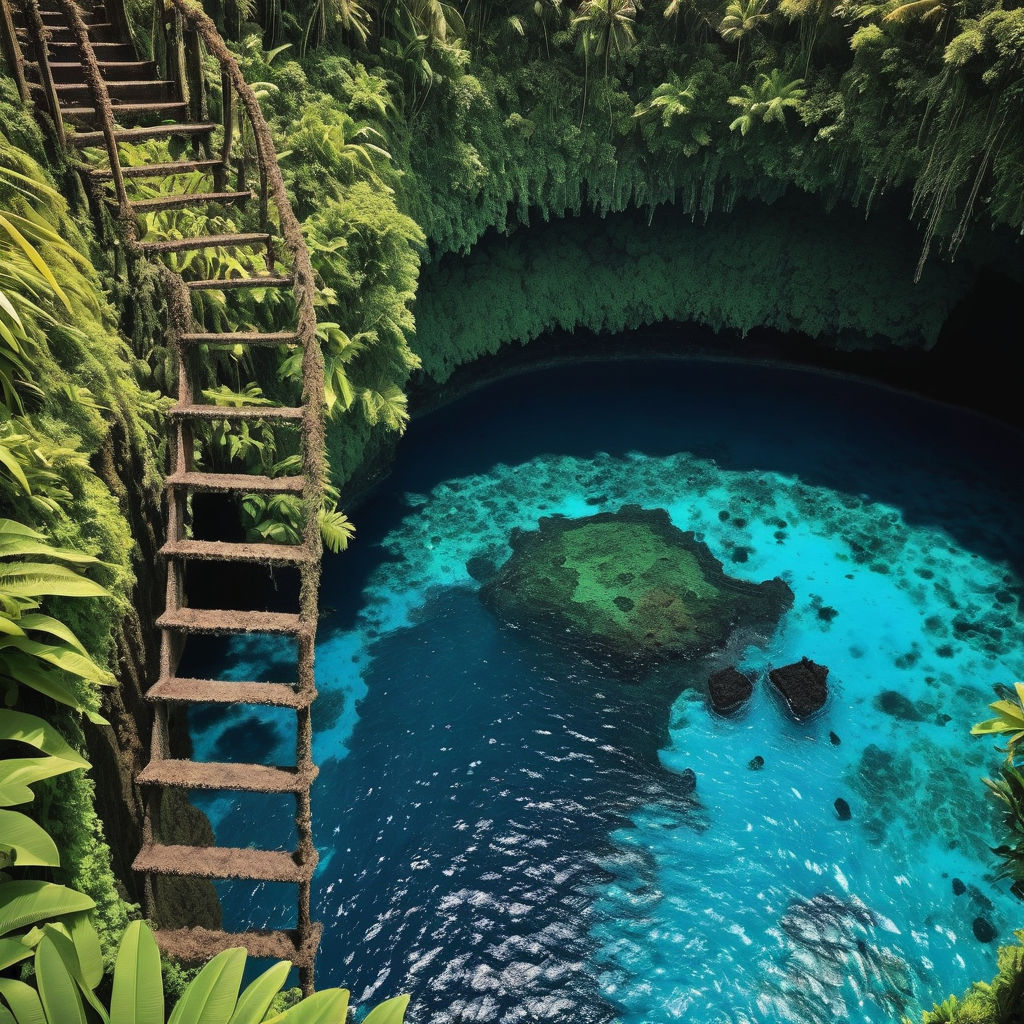Introduction to Samoa: A Blend of Tradition and Natural Beauty
Exploring Samoa's Cultural Heritage and Cross-cultural Engagement

Introduction to Samoa
Samoa is a picturesque island nation located in the South Pacific Ocean, approximately halfway between Hawaii and New Zealand. It consists of two main islands, Upolu and Savai'i, along with several smaller islands. The capital city, Apia, is situated on Upolu Island. Samoa is renowned for its stunning landscapes, including pristine beaches, lush rainforests, and cascading waterfalls. The country boasts a rich cultural heritage that blends traditional Polynesian customs with influences from its colonial history.
Cross-national and Cross-cultural Understanding
The people of Samoa are known for their warm hospitality and openness towards other cultures. This inclusive attitude is deeply rooted in the country's Polynesian heritage, which values community, respect, and harmony. Samoans generally perceive and engage with other cultures in a positive light, seeing cross-cultural interactions as opportunities for learning and enrichment. Samoa participates in various cultural exchanges and educational programs that promote cross-cultural understanding. These initiatives often involve partnerships with countries such as New Zealand, Australia, and the United States. For instance, the Peace Corps has a significant presence in Samoa, facilitating cultural exchange and mutual understanding. Additionally, Samoa hosts numerous international students and scholars, fostering an environment of intellectual and cultural exchange. International partnerships also play a crucial role in Samoa's approach to cross-cultural understanding. Through organizations like the Pacific Islands Forum, Samoa collaborates with other Pacific nations on issues of regional importance, further promoting cultural and political ties.
Interactions and Social Dynamics
Interactions between Samoans and foreigners are typically characterized by respect, friendliness, and curiosity. Samoan social behaviors emphasize communal values, and visitors often find themselves warmly welcomed into local communities. The traditional greeting in Samoa, the "mālō," involves a respectful bow and the phrase "mālō le soifua," meaning "good health." Language plays a vital role in these interactions. While Samoan is the official language, English is widely spoken and understood, facilitating communication with foreigners. This bilingualism enhances the ability of Samoans to interact with visitors and participate in global conversations. The use of both languages reflects Samoa's historical ties with Western countries and its commitment to preserving its cultural identity. Social norms in Samoa are guided by the "Fa'a Samoa" (the Samoan way), which emphasizes respect for elders, communal living, and adherence to traditional customs. Foreigners are expected to show respect for these cultural norms, such as dressing modestly and participating in local customs and ceremonies. This mutual respect creates a harmonious environment for cross-cultural interactions.
Views on Dating and Relationships
Attitudes towards dating and relationships with foreigners in Samoa are generally open and accepting, though traditional values still hold significant influence. The younger generation, in particular, is more open to forming relationships with foreigners, influenced by globalization and increased exposure to different cultures through media and travel. Dating in Samoa often involves close family involvement and adherence to traditional customs. Families play a significant role in the approval and support of relationships, ensuring that cultural values and traditions are respected. While this can pose challenges for cross-cultural relationships, it also provides a supportive network for couples. Traditional expectations, such as the importance of family approval and the role of extended family in daily life, influence attitudes towards dating. However, there is a growing acceptance of diverse relationships, reflecting the evolving nature of Samoan society.
Marriage and Family
Marrying foreigners in Samoa is generally accepted, though it comes with certain cultural and familial considerations. Legal procedures for marriage involve obtaining a marriage license and fulfilling residency requirements, which are similar to those in many other countries. The legal framework supports cross-cultural marriages, making the process relatively straightforward for foreigners. Family approval is crucial in Samoan marriages. The extended family, or "aiga," plays a significant role in the wedding process and provides ongoing support for the couple. Weddings in Samoa often blend traditional Samoan customs with elements from the foreign spouse's culture, creating unique and culturally diverse ceremonies. Cross-cultural marriages are seen as opportunities to strengthen social ties and foster cultural exchange. These unions often result in culturally rich households where children benefit from exposure to multiple languages and traditions, fostering a global perspective from an early age.